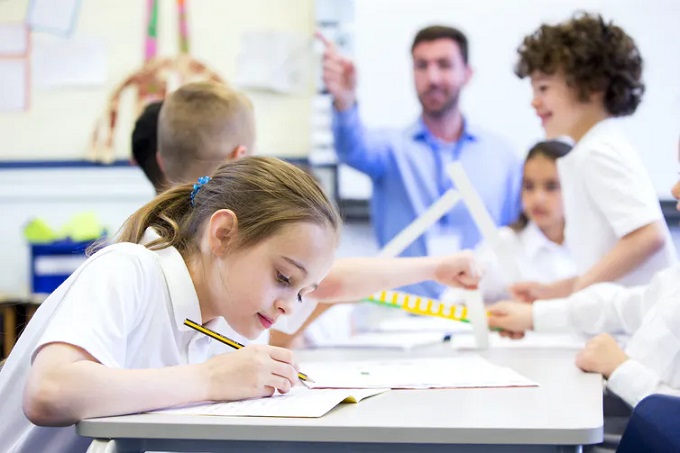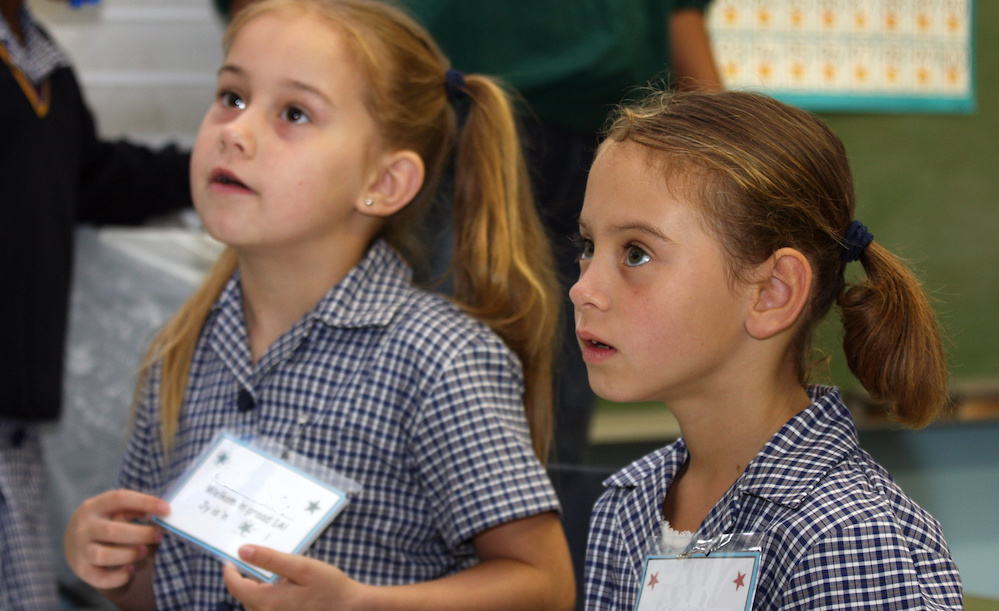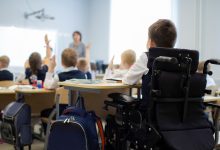A school system tailored to individual ability rather than age sounds good, but there’s no evidence it works
Until we have research documenting and evaluating such approaches, at scale across whole schools and systems, the risks far outweigh the potential benefits.

One of the boldest recommendations in the review of the New South Wales curriculum was to introduce “untimed syllabuses”. According to the review’s report – delivered in June 2020 — these
do not specify when every student must commence, or how long they have to learn, each syllabus. Students progress to the next syllabus once they have mastered the prior syllabus. Students who require more time have it; students ready to advance are able to do so.
The idea of letting kids work at their own pace is at first glance appealing. The NSW government said recently it would trial the concept on a small-scale basis in the coming years.
But while some similar strategies have been researched, there is no evidence on how an “untimed syllabus” would work in schools. Such a proposal also presents serious disruptions to schooling and a range of risks.
What available research shows
Changing the delivery of the curriculum so students can progress at different rates is part of what’s known as a differentiated curriculum approach.
A 2018 review analysed 20 good quality studies since 1995 on how differentiation affects language and math performance in primary schools.
They found where it was applied to and between classes, it had a small negative effect on low-ability students, and no effect on others. But when differentiation occurred as part of broader school reform, with teacher professional development and technology implementation for example, there was a small to moderate positive effect on students’ performance.
Another study published in 2019, of 14 quality studies on the effects of differentiated instruction in secondary schools, said the majority of the studies found small to moderate positive effects on student achievement. But the authors also noted:
… there are still severe knowledge gaps. More research is needed before drawing convincing conclusions regarding the effectiveness and value of different approaches to differentiated instruction for secondary school classes.
But the NSW curriculum review’s proposal for “untimed syllabuses” is a very different reform to what the reviews above looked at. These explored differentiated learning across specific classes, or lessons – not a whole education system.
One recent review examined 71 studies of implementation of personalised learning approaches in kindergarten through to year 12. Only two studies evaluated school-wide implementation and none evaluated a system-wide approach.
No studies examined the impact of an individualised curriculum alone, without other initiatives (such as teacher training), and there were no studies relevant to the “untimed syllabus” proposal.
Wordwide, there hasn’t been one education system to try such an approach.
Such an approach is experimental and does not have sufficient preliminary evidence to ethically support it.
It’s not only about academic outcomes
While there is at least some evidence differentiated approaches can positively affect academic scores, there is a lack of rigorous research on how they might affect social or emotional outcomes, or change the nature of teaching.
Schools are complex ecosystems and they serve purposes beyond academic learning. Educational philosopher Gert Biesta outlined three major purposes of schooling: qualification, socialisation and subjectification. Subjectification is about individuation and can be understood as the opposite of the socialisation function.
A good education works towards all three goals and finds an agreeable balance between them. Educational progress in each of these also affects the other two. This means a policy changing the social interactions of a classroom can have wide-reaching repercussions.
Shifting to an individualised or differentiated, untimed curriculum risks losing some important aspects of socialisation as a key driver of academic learning, as well as important social developmental outcomes.
Consider, for example, the peer-to-peer learning that occurs, in both directions, when a high achieving child is seated next to a low achiever and both work together on class activities.
Also consider the potential for “untimed syllabuses” to leave some students working alone on aspects of the curriculum that are either way behind or way ahead of their peers, and you start to see the magnitude of disruption to the social fabric of classrooms.
A tech-heavy reform
Practical implementation of a personalised curriculum requires online services like the learning management systems, and integrated curriculum and assessment platforms.
If a curriculum system is to be truly “untimed” that requires personalised learning accounts. Many are currently in development. But a recent independent review from Germany acknowledges “hardly any evaluation studies have been done to prove the effectiveness of technology-enhanced personalised learning”.
It may be possible to create sensitive ways of implementing individualised approaches to curriculum, using technology while preserving a focus on social relationships. But developing these may take many years.
Until we have research documenting and evaluating such approaches, at scale across whole schools and systems, the risks far outweigh the potential benefits.![]()







